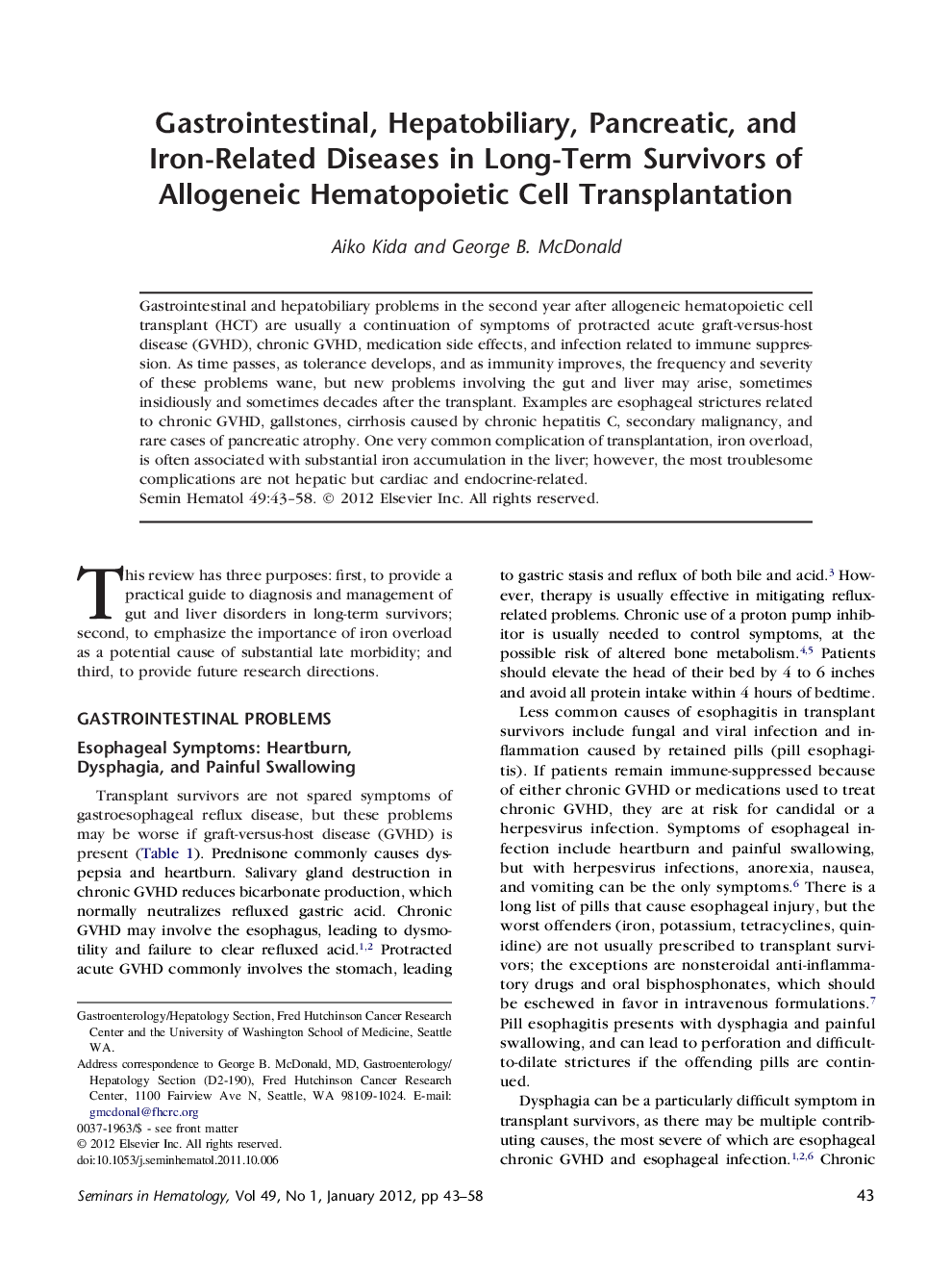| Article ID | Journal | Published Year | Pages | File Type |
|---|---|---|---|---|
| 3333656 | Seminars in Hematology | 2012 | 16 Pages |
Gastrointestinal and hepatobiliary problems in the second year after allogeneic hematopoietic cell transplant (HCT) are usually a continuation of symptoms of protracted acute graft-versus-host disease (GVHD), chronic GVHD, medication side effects, and infection related to immune suppression. As time passes, as tolerance develops, and as immunity improves, the frequency and severity of these problems wane, but new problems involving the gut and liver may arise, sometimes insidiously and sometimes decades after the transplant. Examples are esophageal strictures related to chronic GVHD, gallstones, cirrhosis caused by chronic hepatitis C, secondary malignancy, and rare cases of pancreatic atrophy. One very common complication of transplantation, iron overload, is often associated with substantial iron accumulation in the liver; however, the most troublesome complications are not hepatic but cardiac and endocrine-related.
